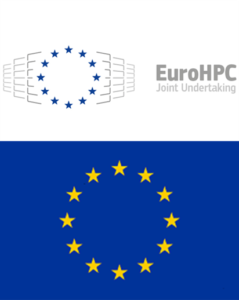Consortium operational capacity
2 Supercomputing Center
- CINECA
- IT4I
1 Experimental research infrastructure
- Atos
2 large companies
- Avio Aero
- Atos
2 SMEs
- Morfo
- Neuropublic
6 Research Organization
- LINKS
- INRIA
- CINI
- SINTEF
- MPI-M
- DELTARES
1 International Organization
- ECMWF
Partners
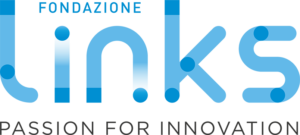
Links Foundation (LINKS)
LINKS Foundation is a non-profit private Foundation founded in 2018 with the aim to boost the interaction between research and the business world towards the internationalization of the local socio-economic system. LINKS promotes, conducts, and strengthens innovation and research projects processes, improving products implementation as well as the study of new approaches and models. LINKS is the result of the merge of two distinguished research and innovation institutions: ISMB (Istituto Superiore Mario Boella), focusing on ICT, and SiTI (Istituto Superiore sui Sistemi Territoriali per l’Innovazione), focusing on Territorial Systems and Smart Cities. Similarly, to ISMB and SITI, this Foundation has been founded by Compagnia di San Paolo and Politecnico di Torino.
LINKS Foundation takes advantage of 15 years of background intellectual properties, competences of ISMB and SITI, two institutions well positioned at the European level and within the research community. LINKS relies on technological and process competences of about 160 researchers working in close cooperation with companies, academia and Public Administration. It is organized in Research Areas focused on core sectors of ICT that are capable of managing the whole value chain, from basic technology up to its practical implementation (proof-of-concept) and orienting its focus on priority themes of the European agenda. Such an evolution aims at employing excellences and results of Research Areas into Strategic Programs that are interdisciplinary by nature.
LINKS Foundation is involved in several industrial cooperation activities with both large enterprises and SMEs, as well as in various higher-education initiatives in partnership with academic institutions. LINKS is full member of the BDVA (Big Data Value Association), HiPEAC Network of Excellence and Heterogeneity Alliance (H-HW&SW Alliance).
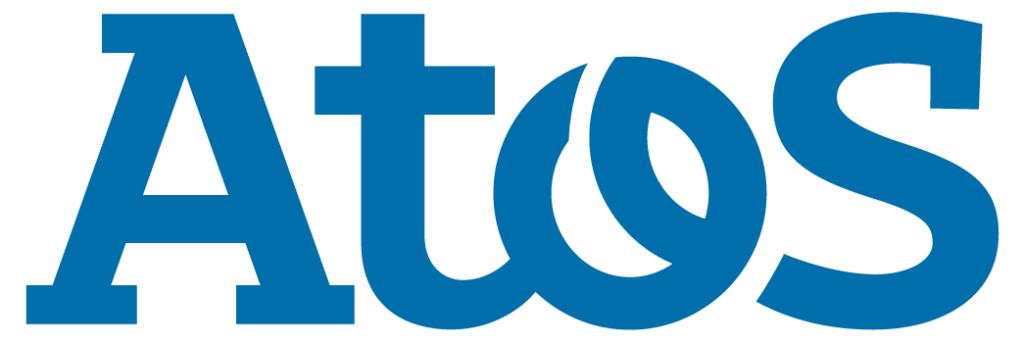
Atos
Atos is a global leader in digital transformation with 105,000 employees and annual revenue of over € 11 billion. European number one in cybersecurity, cloud and high performance computing, the Group provides tailored end-to-end solutions for all industries in 71 countries. A pioneer in decarbonization services and products, Atos is committed to a secure and decarbonized digital for its clients. Atos operates under the brands Atos and Atos|Syntel. Atos is a SE (Societas Europaea), listed on the CAC40 Paris stock index.
Atos has, for many years, provided solutions offering high performance and availability of computing systems as well as value-added software such as Atos Codex AI Suite for data-driven business transformation. Atos has strong competencies in the development of HW & SW architectures, which make it possible to design, build, run and secure smart business services and data platforms, optimizing data management and AI applications development. The participation of Atos (through its BULL SAS affiliate) to ACROSS project is an opportunity to leverage HW acceleration of computation (in particular for AI) and orchestration. These advanced technologies will be embedded in the ACROSS platform and adapted in order to support the execution of large-scale HPC simulations combined with Big Data and deep learning computation steps with seamless exploitation of hardware heterogeneity.

VYSOKA SKOLA BANSKA – TECHNICKA UNIVERZITA OSTRAVA/ IT4Innovations
National Supercomputing Center (IT4I)
IT4Innovations National Supercomputing Center (hereinafter IT4Innovations) is a university research institute of VSB – Technical University of Ostrava. IT4Innovations is a leading research, development, and innovation centre active in the field of high-performance computing (HPC), high-performance data analysis (HPDA), and artificial intelligence (AI) operating the most powerful supercomputing systems in the Czech Republic. In these fields, IT4Innovations provides latest technologies as well as expertise to both Czech and international research teams from academia and industry. At the same time, IT4Innovations plays a role of the national research infrastructure.
Together with another two national infrastructures, CESNET and CERIT-SC, IT4Innovations constitutes a unique e-infrastructure of the Czech Republic called e-INFRA CZ, which is listed on the National Roadmap for Large Infrastructures for Research, Experimental Development and Innovations, prepared by the Ministry of Education, Youth and Sports of the Czech Republic.
Moreover, it is the national node of PRACE (the Partnership for Advanced Computing in Europe – a Pan-European e-infrastructure), and is a member of EuroHPC Joint Undertaking (building a European exascale supercomputer), ETP4HPC (European Technology Platform for High Performance Computing), DBVA/DAIRO (Big Data Value Association), and EUDAT (Collaborative Data Infrastructure), HiPEAC (High Performance Embedded Architectures and Compilers), and I4MS (ICT Innovation for Manufacturing SMEs). IT4Innovations is also registered by the European Commission as a Digital Innovation Hub in the fields of HPC, artificial intelligence, and advanced data analysis. IT4Innovations provides computational resources, know-how and expertise to academia and industry across the Czech Republic and to the European HPC community as well.
At present, IT4Innovations is running three supercomputers: Salomon (2 PFlop/s, installed in the summer of 2015), Barbora (849 TFlop/s, installed in the autumn of 2019), and the specialized NVIDIA DGX-2 system for artificial intelligence computation, (2 PFlop/s in AI, installed in the spring of 2019). Moreover, the brand-new petascale Karolina supercomputer with a theoretical peak performance of 15.2 PFlop/s was installed at the centre in 2021 as part of the EuroHPC Joint Undertaking becoming the most powerful supercomputer in the Czech Republic.In ACROSS project, IT4Innovations leads the user-driven co-design taking into consideration the requirements and lessons learned from the use cases and leads the task focused on providing the simple access to ACROSS platform and services provisioning. IT4Innovations contributes to uncertainty quantification, in order to identify the most important factors (model inputs) and hidden interactions, which lead to bottlenecks for scaling and performance. IT4I contributes to define the hardware (HW) and software (SW) requisites of the HPC and Big Data platform; provides the hardware infrastructure of HPC and Big Data platform and the computing hours both needed to run the CAE simulations which the Turbomachinery and Combustor pilots are based on; contributes to final summarization of achievements, review of Aeronautics use cases’ KPIs and estimating expected impact on Aeronautical Industries and market.

CINECA
CINECA is a non profit Consortium, made up of 69 Italian universities, 25 Italian National Institutions, and the Italian Ministries of Education, and of Universities and Research. Today it is the largest Italian supercomputing centre for the research, one of the most important worldwide. With more than nine hundred employees, it operates in the technological transfer sector through high performance scientific computing, the management and development of networks and web based services, and the development of complex information systems for treating large amounts of data.
The mission of the HPC department is to accelerate the scientific discovery by providing high performance computing resources, data management and storage systems and tools and HPC services and expertise at large, aiming to develop and promote technical and scientific services related to high-performance computing for the Italian and European research community.
Cineca is currently one of the Large Scale Facilities in Europe and it is a PRACE Tier-0 hosting site.
CINECA enables world-class scientific research by operating and supporting leading-edge supercomputing technologies and by managing a state-of-the-art and effective environment for the different scientific communities. The staff offers support and consultancy in HPC tools and techniques and in several scientific domains, such as physics, particle physics, material sciences, chemistry.
Specifically for the project ACROSS, CINECA will contribute with its infrastructural capabilities and expertise, through the current and next-generation pre-exascale systems in support of the use cases foreseen to be co-designed throughout the project, for aeronautics, weather and climate forecasting and energy and carbon sequestration industrial sectors.

AVIO AERO (AA)
Avio Aero is a GE Aviation business which operates in the design, manufacture and maintenance of civil and military aeronautics components and systems. Today, the company offers innovative technological solutions which allow customers to respond faster to the market’s on-going changes: additive manufacturing, rapid prototyping as well as technologies dedicated to the production of transmissions, turbines and combustors.
Through ongoing investments in research and development, and thanks to a consolidated network of contacts and relations with major international universities and research centers, Avio Aero has attained an internationally recognized level of excellence in technology and manufacturing: an achievement borne out by its partnerships with the leading global actors in the aeronautical sector. Avio Aero’s challenge is to develop new technologies and applications in order to cut energy consumption, produce lighter aircraft and deliver better performance.

ECMWF
ECMWF is the European Centre for Medium-Range Weather Forecasts.
We are both a research institute and a 24/7 operational service, producing global numerical weather predictions and other data for our Member and Co-operating States and the broader community. The Centre has one of the largest supercomputer facilities and meteorological data archives in the world. Other strategic activities include delivering advanced training and assisting the WMO in implementing its programmes.
We operate two services from the EU’s Copernicus Earth observation programme, the Copernicus Atmosphere Monitoring Service (CAMS) and the Copernicus Climate Change Service (C3S). We also contribute to the Copernicus Emergency Management Service (CEMS).
The organisation was established in 1975 and now employs around 360 staff from more than 30 countries. ECMWF is one of the six members of the Co-ordinated Organisations, which also include the North Atlantic Treaty Organisation (NATO), the Council of Europe (CoE), the European Space Agency (ESA), the Organisation for Economic Co-operation and Development (OECD), and the European Organisation for the Exploitation of Meteorological Satellites (EUMETSAT).
In the context of ACROSS, ECMWF coordinates the Weather, Climate, Hydrological and Farming Pilot, which aims to demonstrate pre-exascale scalability of state-of-the-art meteorological and climatological models and enable HPDA on multi-petabyte meteorological and climatological archives.
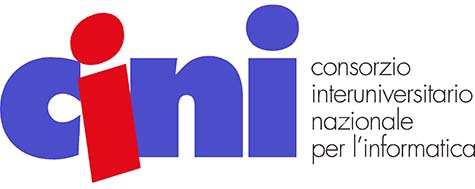
CINI
Established in 1989, CINI is a consortium of 47 Italian public universities, plus the CNR, and it is today the main point of reference for the national academic research in the fields of Computer Engineering, Computer Science, and Information Technologies. It involves 1,300+ professors in different areas of expertise, promoting collaborations among members and joint participation in international project.
CINI participates in the ACROSS project with the brand new laboratory “HPC Key Technologies and Tools” whose founding Director Prof. Marco Aldinucci is also involved in the ACROSS project. The HPC-KTT laboratory focuses on programming and execution models and tools, system software, software engineering for high performance, energy consumption reduction, cloud computing access systems. The laboratory is multi-disciplinary by design because it integrates into a single partner a selected number of research groups chosen in the research portfolio of over forty Italian universities. Specifically, three research groups from the University of Torino, Genova, and Firenze are involved in ACROSS.
The Computer Science department of the University of Torino participates with the Parallel Computing research group, counting the participation in over 15 EU projects in the parallel computing area and coordinating the regional HPC4AI federated center. The group is interested in parallel and distributed programming models, languages, and architectures, and it is focused on developing and operating novel middleware tools for the HPC-AI convergence in different areas, including health, life science, genomics, chemistry, physics. In ACROSS, the group is mainly involved in the multi-level orchestration system design and development.
The department of Mechanical Engineering of the University of Genova is active in the field of experimental and numerical analysis of the unsteady aerodynamics of gas turbine components, counting the participation in over eight EU projects in the field of turbomachinery, with a long term (over 20 years) collaboration with AVIO Aero. It is devoted to developing data analysis routines for the study of Big Data in the field of fluid machinery. The HTC-Group at the University of Florence has a recognized experience in the field of experimental and numerical modeling of heat transfer and combustion in turbomachinery. Most of the activities have been carried out in the participation to more than 15 EU research projects during the last 20 years often as a key partner of AVIO Aero. Concerning the numerical modeling, UNIFI is involved in the definition of multi-scale and multi-physics CFD methods for the investigation of conjugate heat transfer and reactive flows processes to support the aeronautical combustor pilot.

Institut National de Recherche en Informatique et en Automatique (INRIA)
Established in 1967, Inria is the only French public research body fully dedicated to computational sciences. It is a national operator in research in digital sciences and is a primary contact point for the French Government on digital matters. Inria’s missions are to produce outstanding research in the computing and mathematical fields of digital sciences and to ensure the impact of this research on the economy and society in particular. Inria covers the entire spectrum of research at the heart of these activity fields and works on digitally-related issues raised by other sciences and by actors in the economy and society at large. Beyond its structures, Inria’s identity and strength are forged by its ability to develop a culture of scientific innovation, to stimulate creativity in digital research. Throughout its 8 research centres and its 178 project teams, Inria has a workforce of 2 600 scientists with an annual budget of 230 million euros, 27% of which coming from its own resources. Inria’s mission is to pursue excellent research in computer science and applied mathematics in order to play a major role in resolving scientific, societal and industrial challenges. Therefore, Inria actively collaborates with public and private bodies including strategic partnerships with large firms, SME’s technology platforms and industrial clusters. Technology transfer is further enhanced by helping to launch new companies (since 1984, about 140 companies have stemmed from Inria) and by forming partnerships with innovative SMEs.
More information: http://www.inria.fr
Contributions to this project will come through the KERDATA team of the INRIA Rennes Bretagne Atlantique Research Centre. KerData’s research addresses the area of distributed data management at challenging scales, with a focus on clouds and post-petascale HPC systems and simulations. The team specifically targets data-oriented high-performance applications that exhibit the need to handle massive non-structured data stored in a large number (thousands to tens of thousands) of nodes, accessed under heavy concurrency by a big number of clients (thousands to tens of thousands at a time) with a relatively fine access grain (on the order of megabytes). A focus of the team is the efficient management of data streams in support of real-time online Big Data processing.

SINTEF AS (SINTEF)
SINTEF is a multidisciplinary research concern that possesses international top-level expertise in technology, medicine and the social sciences. SINTEF is an independent, non-profit research foundation pursuing the vision statement “technology for a better society”. With approximately 2000 employees it is the largest independent research organization in Scandinavia. SINTEF is represented in this consortium through the department of Mathematics and Cybernetics (MaC) and the department of Software and Service Innovation (SaSI). Both departments have extensive experience from EU projects as coordinator or partner. Recent examples include: RIA CAxMan (2015- 2018, coordinator), MSO4SC (2016-2018, partner), I4MS IA CloudiFacturing (2017- 2021, partner).
The computational geosciences research group within the MaC department develops computational methods and software for flow and transport in porous media.
Collaborations with industrial partners make up the core of our activities. Our ambition and specialty is to incorporate state-of-the-art research within porous media into numerical methods and simulation tools that are capable of handling real reservoir models, which are characterized by very strong heterogeneities and discontinuities. The group is active in developing new numerical methods for flow and transport in porous media, and well known for its creation of and contribution to open source scientific software (MRST and OPM).Through the SaSI department, SINTEF was one of the founding partners of BDVA –Big Data Value Association, and is now also active in the creation of a future AI PPP with BDVA, euRobotics and various AI associations, with the development of a corresponding Strategic Research, Innovation and Deployment Agenda for AI, Big Data and Robotics (SRIDA). SINTEF GEMINI Big Data Center has recently been accredited as a BDVA iSpace “Silver label”.

NEUROPUBLIC SA (NP)
NEUROPUBLIC is an innovative ICT SME (90+ employees), specialized in the development of integrated information systems and high-demand applications built in Cloud computing architecture. NEUROPUBLIC (NP) has built and operates its own data center offering cloud services at platform level (PaaS) and software level (SaaS). NP products and services are being successfully used for over 10 years, by more than 800.000 end-users in agriculture, local government and healthcare. Its financial state, its efficient infrastructure and resources, as well as its longstanding innovation, proper organization and proven technical know-how and experience, make NP one of the most reliable and quality companies in the area of Informatics in Greece.
NP is a member of AIOTI, BDVA, EARSC and Farm Europe and their Smart Farming working groups, invests considerable amount of money in R&D (>3 million euros for the years 2013-2017) and implements the research results on innovative products that satisfy the demands of the future and the new trend markets. NP has participated in various European Space Agency (ESA) projects (Euro-VO Registry, Space Certifiable Compiler Extensions, Data Modelling Technologies, etc.) as well as EC funded projects like H2020 DataBio, E-shape, Ploutos, SmartAgriHubs and Stargate.
Since 2006, NP has been the main provider of the Greek Paying Agency (OPEKEPE) regarding the development of Information Systems on the Common Agricultural Policy (CAP) and Rural Development. NP developed the information systemGAIA which is a significant and efficient tool for information support of the needs of each body of the cooperative and private agricultural economy (“real economy”). GAIA provides a plethora of services in the areas of subsidies, Smart Farming (SF), traceability, professional networks, certifications, management and e-commerce to more than 680,000 end-users (~80% of all Greek agricultural stakeholders), covering the whole spectrum of agri-food stakeholders, including farmers, agronomists, researchers and more.
On 2013 NP started its SF program, aiming to provide next generation advice to farmers. NP designed and developed Gaiatron telemetric stations, for the monitoring of environmental and soil variables. Gaiatrons are IoT autonomous agro-climate stations which collect data from sensors installed in the field. Gaiatrons have reached an adequate maturity for outdoor operation (industrial-grade) and have data exchange and control capabilities. Gaiatrons are specially designed for providing exact fit to the operational requirements asked from modern SF infrastructures. Dense installation network under the canopy, large scale deployment, low operation cost and mobility are some of their operational requirements. Taking as input the variables coming from the environmental sensing network and combining them with a variety of data coming from remote sensing (RPAs and satellites), proximity sensors, farm data, farm logs etc, a cloud-based DSS supports the decision-making mechanism for the farmer’s every-day farming activities, in an efficient and environmentally friendly way. Currently there are 26 pilot sites covering >60,000 ha and 17 different crops, offering SF services on Fertilisation, Irrigation, Pest Management/Hazard warnings and Weather forecasting to 15,000 farmers. The commercial launch of Gaiasense, NP’s SF solution took place on 2017.

Deltares
Deltares is a Dutch independent institute for applied research in the field of water, subsurface and infrastructure, with broad expertise in all matters related to flood and drought risk assessment, quantification of impacts, and adaptation measures both at a global and local level. Throughout the world, we work on smart solutions, innovations and applications for people, environment and society. Our main focus is on river basins, deltas and coastal regions. Managing these vulnerable areas is complex, which is why we work closely with governments, businesses, other research institutes and universities at home and abroad. Our motto is Enabling Delta Life. As an applied research institute, the success of Deltares can be measured in the extent to which our expert knowledge can be used in and for society.
Our experts as well as our clients apply our software simulation products and solutions in more than 140 countries in a great variety of commercial projects and research studies. This has resulted in much expertise and in-depth knowledge in an extensive field of applications. We offer various solutions to focus on specific target groups. For operational forecasting and data processing, we provide complete information and forecasting systems using Delft-FEWS in combination with any required simulation product. With the forecasting services developed in Delft-FEWS Deltares gained ample experience in real-time data handling, merging and processing as well as delivery.

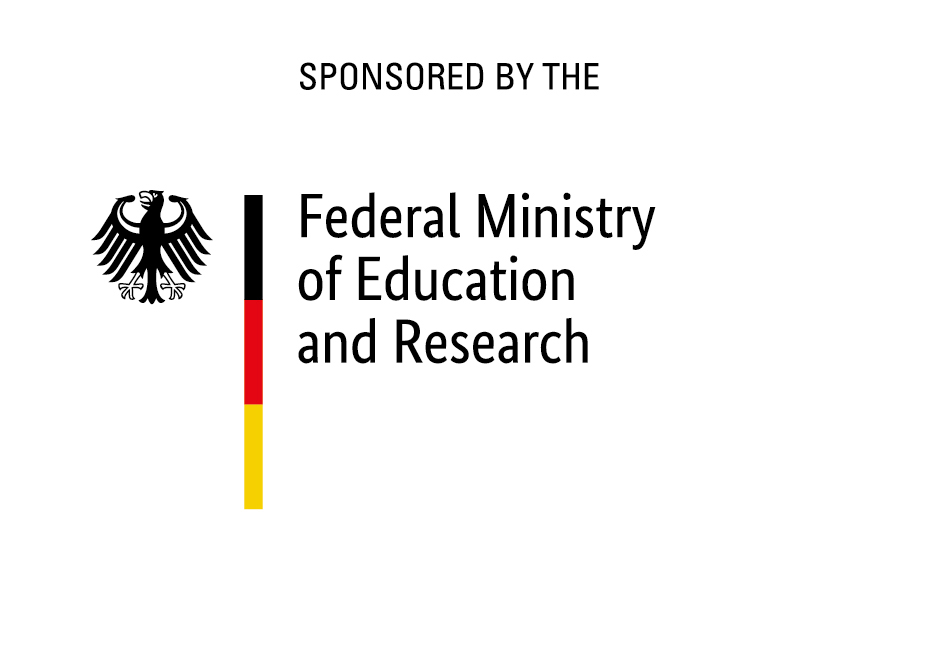
Max-Planck-Institut für Meteorologie (MPI-M)
The Max Planck Society (MPG) is Germany’s most successful research organization established in 1948. The 86 Max Planck Institutes and facilities (as of 2020) conduct basic research in the service of the general public in the natural sciences, life sciences, social sciences, and the humanities. Max Planck Institutes focus on research fields that are particularly innovative, or that are especially demanding in terms of funding or time requirements.
Based on this general concept, the Max Planck Institute for Meteorology (MPIM) develops and uses Earth System Models and critical observations to support its overall mission: To understand Earth’s changing climate. Research activities within the MPI-M are centered in three departments: The Atmosphere in the Earth System; The Land in the Earth System and The Ocean in the Earth System. The institute also hosts independent research groups focused on Stratosphere and Climate and Turbulent Mixing Processes in the Earth System. The International Max Planck Research School on Earth System Modelling (IMPRS-ESM) – jointly run by the MPI-M and the Universitat Hamburg – manages the institute’s contribution to doctoral training.
The MPI-M has a long history in the development and application of coupled comprehensive climate/earth system models (ESMs). To satisfy the extensive computational needs of MPI-M, the institute built strategic partnership with the German Climate Computing Centre (DKRZ), the German collaborator of the Earth System Grid Federation (ESGF). MPG is also the major shareholder of the DKRZ. MPI-M maintains a close cooperation with the German weather Service DWD (Deutscher Wetterdienst) for the development of the comprehensive modelling framework ICON (ICOsahedral Nonhydrostatic) for numerical weather prediction, climate simulation and process studies.
MPI-M has a well-established and reputed ability for coordinating and hosting European and national research projects. The institute provides experienced, skilled and significantly endowed technical and administrative resources. Scientists receive professional support from the EU Grant Office at MPI-M and the legal department at the General Administration of the Max Planck Society (MPG)

Morfo Design S.r.l. (MORFO)
The MORFO project stems from a long-date experience gained within the University of Florence in the field of advanced aerodynamic design. During the course of over thirty years, the research group has continuously assisted turbomachinery companies with the design and analysis of turbomachinery,
taking advantage of the most recent research tools in the field of Computational Fluid Dynamics (CFD).
MORFO was founded in 2018 as a spin-off of University of Florence, with the aim of expanding the research activity in the field of advanced aerodynamic design to new areas. Morfo is leveraging the ongoing revolution concerning a diffuse adoption of advanced Artificial Intelligence (AI) techniques, combined with modern High Performance Computing (HPC) resources and accurate CAE models for bringing innovation in the aerodynamic design.
The essence of MORFO vision is in combining science, technology and observation from nature to assist the design of next generation aerodynamic components.
